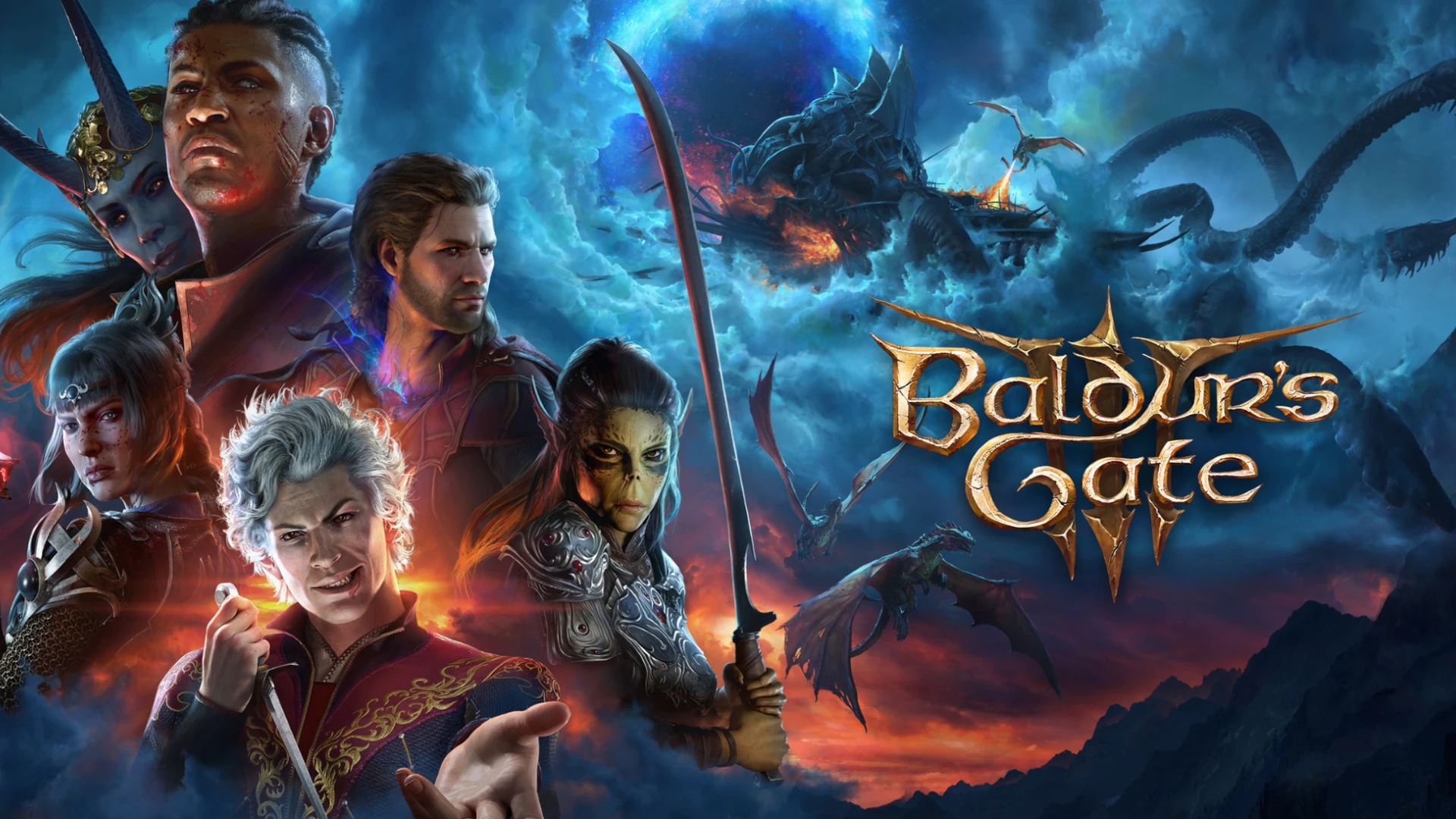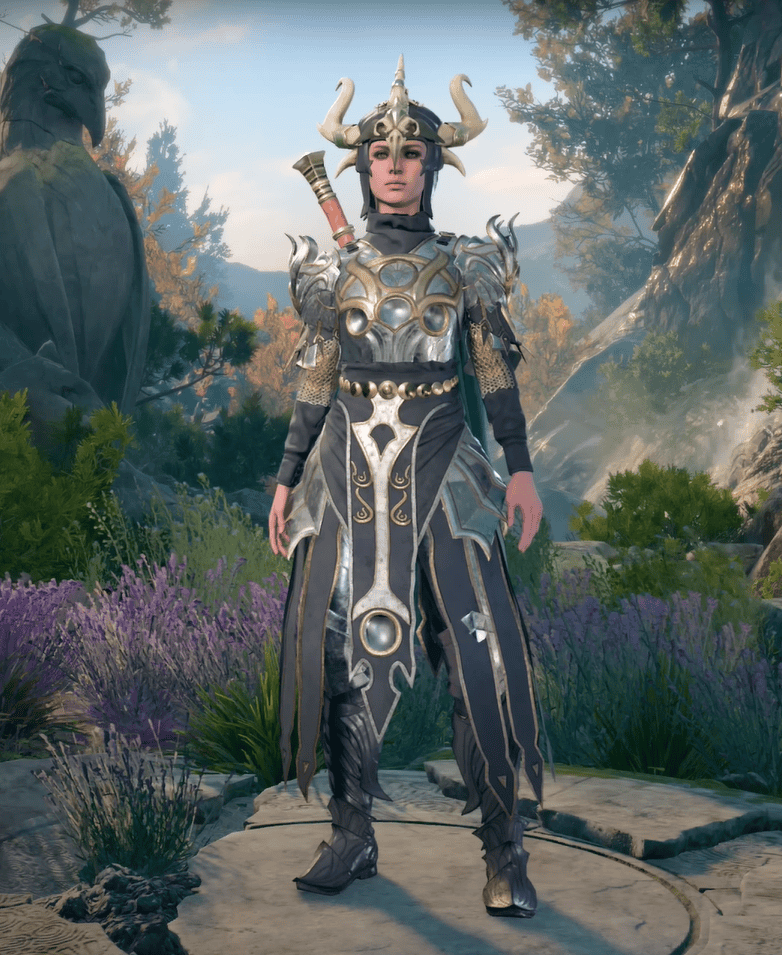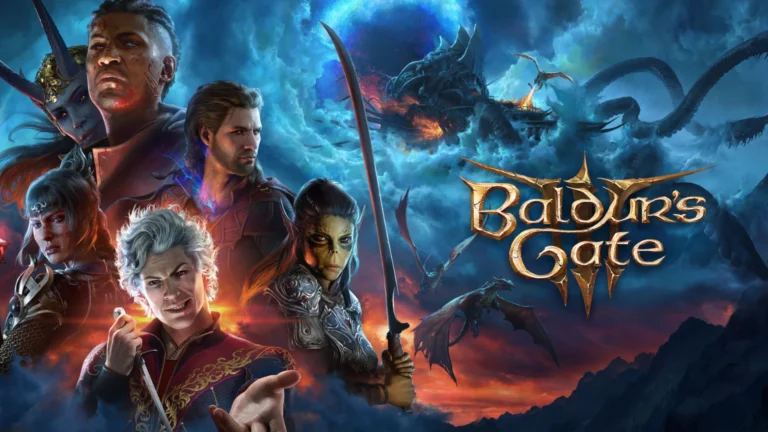
Should you evolve in Baldur’s Gate 3? The answer really depends on your character and playstyle. Evolving offers significant benefits, but it also comes with drawbacks. It’s crucial to carefully weigh the pros and cons before making a decision. The choice affects the player’s abilities, the story, and interactions with companions. Illithids are powerful and villainous creatures known for their mind-controlling abilities, so becoming one might seem scary. However, the game features an Astral-Touched Tadpole, which gives the player the potential to use some of the Illithid’s powers.
Choosing to change may grant new powerful abilities and change your character’s appearance to reflect their new self. However, the change might also make companions feel distant and affect the story in unexpected ways. Your transformation will not only affect your experience in battles but also how the game world reacts to you. It’s a thoughtful decision with the potential for big changes in gameplay and story.

Should You Evolve or Not in Baldur’s Gate 3?
In Baldur’s Gate 3 (BG3), players face a crucial choice—whether to embrace the parasitic tadpole implanted in their minds or fight against its influence. Evolving means transforming into a partial Illithid (Mind Flayer) and comes with both risks and benefits.
The Benefits of Evolving
- Enhanced abilities: Evolving grants access to powerful new abilities and stat increases, significantly boosting your character’s combat effectiveness.
- Unique storyline: Embracing your Illithid heritage through evolution opens up a unique storyline with compelling choices and consequences.
- Powerful Psionic Abilities: Evolving grants access to unique psionic abilities, including:
- Mind Blast: Stun nearby enemies.
- Tentacle Whip: Pull an enemy closer.
- Charm: Persuade NPCs and creatures.
- Sharing the Power: You can convince other party members to evolve, granting them similar powers.

The Risks of Evolving
- Loss of Tadpole powers: Evolving removes your existing Tadpole powers, which can be valuable assets in certain situations.
- Potential for corruption: There’s a risk of succumbing to the Illithid influence and becoming more monstrous, impacting your character’s personality and choices.
- Appearance Changes: Your character’s appearance changes, with noticeable Illithid features.
- Party Disapproval: Your companions will disapprove of your transformation, potentially leading to conflict.
- Submitting to the Absolute: Evolving makes it more difficult to resist the influence of the Absolute, the leader of the Mind Flayers.
Factors to consider:
- Character class and build: Certain classes benefit more from evolution than others. Consider how the new abilities and stat increases would complement your character’s existing strengths and weaknesses.
- Playstyle preferences: If you enjoy exploring the narrative possibilities and embracing the darker aspects of the story, evolution may be a rewarding choice. If you prefer to focus on traditional combat and character development, sticking with your current abilities might be more suitable.
- Role-playing choices: Your decision should align with your character’s personality and motivations. Would they willingly embrace their Illithid heritage, or would they resist it at all costs?

The Choice is Yours
Ultimately, the choice of whether or not to evolve is a personal one. There’s no right or wrong answer, and the best decision will depend on your individual preferences and priorities. Take your time to explore the possibilities, weigh the pros and cons, and make the choice that feels most authentic to your character and your Baldur’s Gate 3 experience.
Here’s a table to help you weigh the options:
| Aspect | Evolve | Do Not Evolve |
|---|---|---|
| Abilities | Gain powerful psionic powers | No psionic abilities |
| Appearance | Become part Illithid | Retain your original form |
| Companions | May persuade them to evolve | Companions strongly disapprove |
| Resistance to the Absolute | More susceptible to influence | Easier to resist the Absolute |
Consider your character’s personality, goals, and how you want to play the game when making this significant decision in Baldur’s Gate 3.
Key Takeaways
- Players must decide on evolution, affecting powers and narrative.
- Evolving offers unique abilities but may strain relationships.
- Player choices significantly impact the game’s direction.
The Path to Evolution
In “Baldur’s Gate 3,” the evolution of your character hinges on a complex decision that involves a mysterious entity known as an astral-touched tadpole. This choice affects your character’s abilities and relationships with party members, and it brings a considerable change to gameplay dynamics.
Understanding the Tadpole
The astral-touched tadpole is a central element of the game’s plot, directly impacting the player’s character (PC) and their companions. Originating from mind flayers, parasites with the power to control minds, these tadpoles offer the potential for significant power but at a cost. The ‘supreme tadpole’ players encounter is different, providing enhanced abilities without the immediate threat of transformation.

The Transformation Process
If a player chooses to let the tadpole ‘evolve’ their character, the transformation process begins. This isn’t just a physical change but also involves the acquisition of new illithid powers, like ‘Absorb Intellect’ and ‘Mind Blast.’ The process doesn’t turn the PC into a full mind flayer, but rather a half-illithid or partial-illithid, granting them tier 1 illithid powers without losing their personality or autonomy.
Implications for PC and Companions
This decision is not just personal. It also affects the dynamics between PC and their companions. Companions may react differently based on their personal views and alignments, forcing the player to consider the decision’s impact on intra-party relationships. Some may fear you, while others might admire the newfound abilities.
Game Mechanics Affecting Evolution
Choosing to evolve alters the PC’s skill tree, providing new skills and spells to use in combat, such as ‘Psionic Dominance.’ However, every choice has consequences, and other party members may change their behavior based on the player’s transformation. The PC’s evolution can shift the dynamic of the game, presenting new strategies and challenges in the playthrough.
Consequences of Evolution
Choosing to evolve in Baldur’s Gate 3 has significant effects on your character. This section explores the changes you will face physically and mentally, as well as the new abilities you may gain.
Physical and Mental Changes
When a player’s character evolves, their physical appearance is altered, often becoming more intimidating. One common transformation includes the development of black veins, signaling the progression towards becoming a Mindflayer or Illithid. Along with changes in appearance, characters can also experience shifts in mental faculties such as increased intelligence or altered personality traits, potentially affecting charisma. The decision to evolve may also lead to disapproval from other characters due to these unsettling transformations.
The Emergence of Powers
Evolving unlocks powerful abilities tied to the Illithid skill tree. These include freecast abilities that allow the character to use spells without expending resources and the ability to fracture psyche, dealing mental damage to enemies. Characters may also gain unique powers like a displacer beast shape transformation, enhanced jump capabilities, or a complete Mindflayer physical appearance. While these powers are potent, they can come at a cost, leading to an alternative ending and potential negative consequences for the character’s journey.
Frequently Asked Questions
Making decisions in Baldur’s Gate 3 can significantly shape your gameplay experience. Evolving, for instance, brings forth changes that affect your character’s abilities, relationships, and how they are perceived in the game world.
What are the consequences of evolving in Baldur’s Gate 3?
When a player chooses to evolve, their character gains access to powerful Illithid abilities. However, this decision impacts how certain NPCs and companions react, as trust and perceptions shift due to the character’s newfound powers and partial transformation.

How does evolving affect romance options in Baldur’s Gate 3?
A character’s choice to evolve can change the dynamics of potential romantic relationships. Companions may approve or disapprove of the transformation, which could either strengthen or weaken romantic ties based on individual preferences and storylines.
Does the player character’s appearance change when they evolve in Baldur’s Gate 3?
Upon evolving, the player’s character undergoes a physical transformation indicative of their new Illithid powers. This partial shift reflects in their appearance, showcasing their evolved state and distinguishing them from their former human form.
Will evolving in Baldur’s Gate 3 result in becoming half illithid?
Yes, accepting the Astral-Touched Tadpole leads to the character becoming a Half-Illithid. This metamorphosis grants the character unique Illithid features and abilities, setting them apart from their original race and class.
How does the decision to evolve impact your companions in Baldur’s Gate 3?
Companions respond to the player’s evolution based on their personalities and backstories. Some may disapprove or feel uneasy, which could alter the course of friendships and alliances. The player might have to work to regain their trust or face the consequences of diverging paths.
What benefits does evolving provide in Baldur’s Gate 3 gameplay?
Evolving offers new combat strategies and interaction opportunities within the game. The character gains exceptional powers that can be leveraged during battles and when navigating challenges. These advantages can be a turning point in gameplay, giving players a fresh way to approach obstacles.

